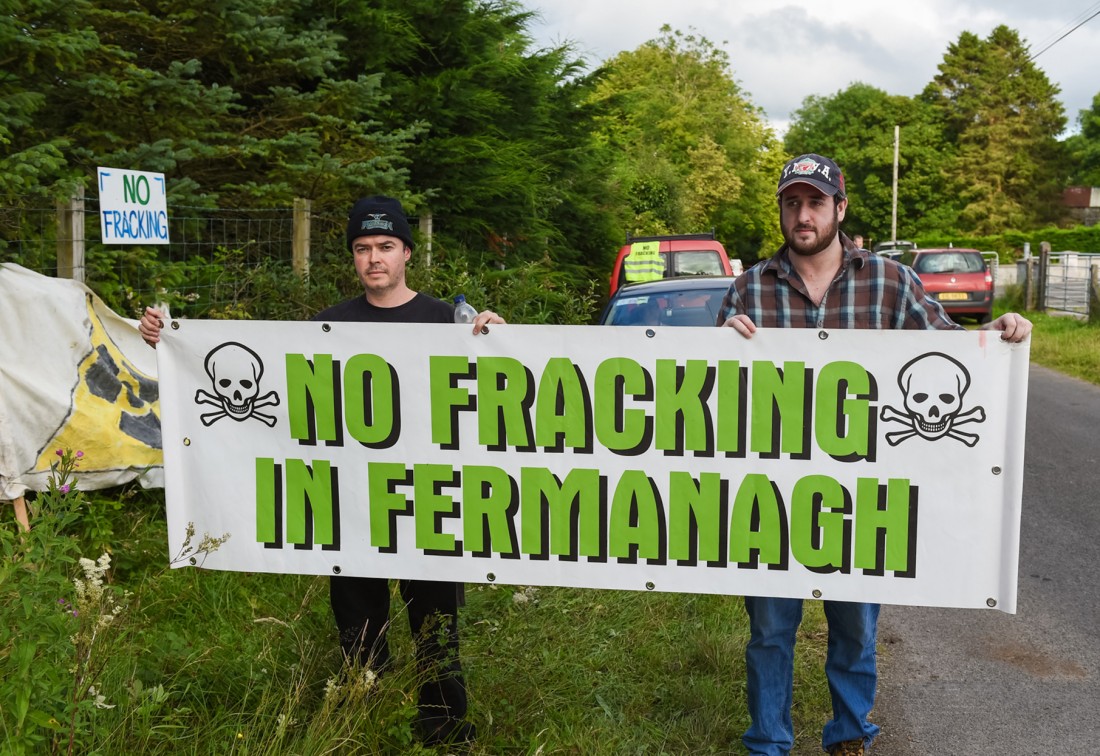FRACKING in Fermanagh would see an unprecedented “industrial revolution” that would transform large swathes of the county’s farmland for industrial use in just five years, cost the county hundreds of millions, and would “despoil” the local landscape.
That’s the stark conclusion of a new study into the impact of fracking in Fermanagh, commissioned by the local Council, which has confirmed any potential benefits to fracking locally would be far outstripped by the problems it would cause, and noted the local ‘losers’ would be unlikely to ever recover from its impact.
The study was aimed at looking at the impact of hydraulic fracturing, better known as fracking, on Fermanagh and its population.
It was undertaken in response to a motion proposed by Cllr John Coyle in April last year calling on the Council to state its “clear and unambiguous corporate position” in relation to exploration and fracking.
The motion also called on the Council to commission a study into the impacts of fracking on our local environment.
Now that study is complete and it sets out the processes involved in unconventional oil and gas (UOG) exploration, it’s water requirements, as well as its environmental, economic, social, public health, and human rights impact.
In a report on the study, due to be delivered to the Council’s regeneration and community committee tonight (Wednesday), the Council summarised its main points.
“The introduction of UOG activity on a significant scale in Fermanagh and Omagh will represent an industrial revolution whereby large tracts of land will be transformed from agriculture to industrial use in the space of five years,” wrote director of regeneration and planning, Kim McLaughlin.
“The speed and scale of change will produce significant winners and losers due to new investment and jobs, balanced by increased competition for resources and significant increases in pollution levels.
“The issue for Fermanagh and Omagh is that it will be left with all the loses but most of the gains will leak outside the district to external stakeholders, external employees, and external equipment manufactures.”
Ms McLaughlin continued, “This produces a significant economic cost (£3,257 million) relative to the local benefits (£368 million) for the area as well as a despoiled landscape, adverse impacts on public infrastructure, and worsening public health outcomes.
“After 20-25 years, the UOG industry will wind down in the area, leaving no long-term gains but plenty of long-term losses.
“The loses will be unlikely to be able to recover once UOG activity ceases.”
The study found the environmental outcomes would be “significantly detrimental” to the local population.
“Overall, the study findings uphold the Council’s corporate position which opposes unconventional oil and gas exploration, otherwise known as fracking,” Ms McLaughlin concluded.

Anti-fracking protesters make their views known
Study confirms fracking would devastate county
Posted: 12:00 pm July 16, 2022
Posted: 12:00 pm July 16, 2022








